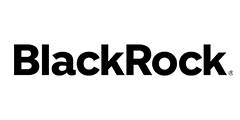- The expert began by presenting the findings of the BlackRock C Suite survey conducted within EMEA earlier in the year. He noted the irony of presenting their C Suite findings to the room of C Suite execs! The findings focussed heavily on post regulatory and technology goals. First and foremost, good technology was essential for the delivery of a first-class wealth proposition. Secondly the impact of MIFID II was highlighting cost transparency, product governance and adviser productivity.
- Fees pressure versus fees paid versus value for money is a fine balancing act as costs continue to rise due to regulatory compliance and technology spend.
- In partnering with an asset manager, the quality of the client service is key as it affects the outsourcing partnership and operations. After service, pricing is the most important consideration.
- Technology must be seen as an enabler and investment is being made across all business areas but there was a drop off in adviser tools which was surprising given the need for efficiencies and productivity. There is a gap in technology as tech firms often don’t understand the complexities of the business and it is so important to get the ‘plumbing’ right to support the target operating model that is scalable.
- While technology is available to all, RMs were seen as the differentiator as investments are so commoditised now. One delegate gave an example of how a bank had spent an enormous sum in trying to build a system that spanned the global business, but while it was a big distraction for the business it ultimately didn’t work out since the US business was not on the platform and this represented half the bank’s business. Execution is where the systems seem to fall down, since platforms are either banking or investment based and spanning the two elements of the business is hugely complex. Examples were given of other major firms that also had significant spend but failed to get off the ground. The difficulty in getting a system that spans execution only, through to robo- advisory, guided and ultimately a HNW discretionary offering is huge.
- The discussion then turned to the clients themselves and how they had reacted to technology versus bankers/RMs themselves. The recent closures of both SmartWealth and Click & Invest were examples of recent ‘failures’ that bankers can point to for not using technology more, but it appears bankers rather than clients, are more reluctant to adopt new technology as it is seen as threatening their position.
“The power of knowledge cannot be ruled out and advisers give access to that knowledge.”
- One delegate raised the impact of GDPR which was also seen as throwing up questions around the use of technology. However, the consensus was that if clients have consented to be contacted on matters related to their investments then this should not hinder communications. Clients can opt out at any point.
- Another delegate then raised the question of whether fees can remain the same, given the required technology investment.
“It is a huge capital outlay to get a core platform in place but with the right infrastructure in place, it should ultimately bring costs down.”
- Client reaction to MIFID II was then debated given the recent distribution of fee letters for the first time. The view was that client reactions have been very muted, and one delegate questioned whether clients were actually reading their statements in full. Firms have put a lot of effort into getting these notifications out, but most were offering pretty full transparency anyway. Frustration was expressed around the timing of fees from third parties such as custodians, and the moving parts that made up the total fee calculations. It was felt that while the wealth industry itself was ready for this reporting, their outsourcing partners were not.
- Finally, the conversation turned to the subject of ESG investing which was raised within the BlackRock survey results. Delegates felt there had been a marked shift by clients towards ‘purpose’ when investing. While clients like the idea of ESG, they want to know the impact performance. Delegates felt that this theme was well on the way to becoming mainstream and that firms need to embrace it not only from an investment perspective but as part of their company’s broader values. They observed that the NextGen are happy to give up some performance for the sake of sustainable or impact investment themes.
- Questions are still asked around the potential performance drag through ESG and whether there are higher costs in implementing this, but it was pointed out that the institutional investment business is further ahead than wealth in this respect and that this can lead as an example. Society is moving rapidly in this direction and also shareholders are raising the questions more forcefully at annual meetings.
- The expectation in the room was that everyone would need to be reporting on stewardship shortly and that:
“.. part of the value proposition will be finding imaginative ways to deliver on this”.
The key theme of technology and regulation continue to both drive the industry forward, and constrain it, while other themes such as ESG and the client experience also need to be kept front of mind. The continued juggling of priorities will keep CEOs busy for the foreseeable future.
Expert: Rohan Stewart & Andrew Norwell, BlackRock 


